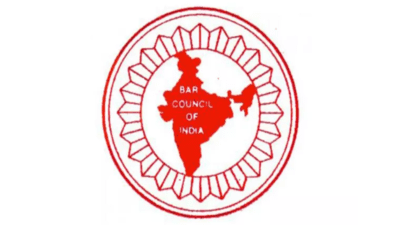Bar council of India issues advisory against unapproved online LLM programmes | India News

NEW DELHI: In a decisive step toward preserving the credibility of legal education in India, the bar council of India (BCI) has issued a formal advisory against the proliferation of unapproved LLM (master of laws) programmes offered in online, distance or hybrid formats. This advisory reinforces the exclusive regulatory role of the BCI and emphasises compliance with existing legal and academic frameworks.The letter, authored by Justice Rajendra Menon, former chief justice of the Delhi High Court and co-chairman of the standing committee on legal education, was addressed to the registrar generals of all High Courts as well as the Supreme Court of India. Copies of the letter were also circulated to universities and state bar councils to ensure compliance and initiate appropriate action.The advisory reiterates the binding authority of Supreme Court rulings, the UGC (open and distance learning) regulations, 2020, and BCI’s own Legal education rules (2008 and 2020), under which LLM programmes must secure prior approval before being conducted via non-traditional methods. Any deviation, it warns, threatens the standard, uniformity, and legal sanctity of postgraduate legal education across the country.Letter issued in this regards stated that, alarmed by the growing number of institutions offering programmes under alternative titles such as LLM (professional), executive LLM, or MSc in cyber law, the BCI has highlighted that many of these courses are being run without mandatory approvals. Such practices, it stated, not only violate Supreme Court directives but also mislead students and degrade academic quality.The bar council clarified that under the Advocates Act, 1961, it is the only statutory authority empowered to regulate both undergraduate and postgraduate law programmes. No other entity, including UGC or autonomous universities, can validate LLM courses independently. The council emphasized that an LLM degree is the minimum qualification required for teaching law, and therefore any relaxation in quality or regulatory compliance directly affects the legal profession.In light of these violations, the BCI has urged High Courts take judicial notice of the BCI’s exclusive authority in legal education, Reject qualifications obtained from unapproved LLM programmes for appointments or promotions andRequire institutions and individuals to submit compliance verification from the BCI where necessary.To protect students and uphold public trust, the bar council plans to release a public advisory cautioning against enrollment in such unauthorized programmes. It is also preparing to initiate contempt proceedings and other legal measures against institutions found violating these guidelines.








